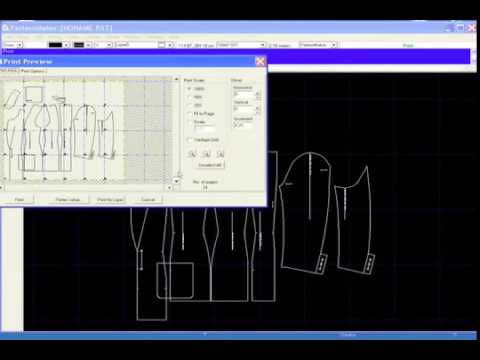High-paying career as a Doctor of Podiatric Medicine: Job description and salary!

Doctor Of Podiatric Medicine Job Description Template
Doctor of Podiatric Medicine (DPM) Job Description A Doctor of Podiatric Medicine (DPM) is a medical professional who specializes in the diagnosis, treatment, and prevention of disorders and injuries related to the foot, ankle, and lower extremities. They are also known as podiatrists. DPMs are responsible for conducting thorough examinations of patients’ feet, ankles, and lower legs to identify any abnormalities or conditions. They may use diagnostic tools such as X-rays, ultrasounds, and laboratory tests to aid in their evaluation. Once a diagnosis is made, they develop and implement treatment plans tailored to the patient’s needs, which may include prescribing medications, physical therapy, orthotics, or surgical interventions. In addition to treating acute injuries and conditions, DPMs also provide routine foot care, such as trimming nails, removing calluses, and addressing corns and bunions. They educate patients about proper foot hygiene, footwear selection, and injury prevention techniques. DPMs often collaborate with other healthcare professionals, such as orthopedic surgeons, physical therapists, and primary care physicians, to provide comprehensive care to their patients. They may also work in multidisciplinary teams in hospitals, clinics, or private practices. Important Skills and Qualities: 1. Expertise: DPMs must have a strong knowledge and understanding of the anatomy, physiology, and biomechanics of the foot and lower extremities. 2. Communication: Effective communication skills are essential for building rapport with patients, explaining diagnoses and treatments, and collaborating with other healthcare professionals. Overall, a Doctor of Podiatric Medicine plays a crucial role in maintaining the health and well-being of individuals by diagnosing and treating various foot and lower limb conditions, enabling patients to lead an active and pain-free life.Doctor Of Podiatric Medicine Responsibilities
- Diagnosing and treating foot and ankle conditions and injuries
- Performing surgical procedures on the foot and ankle
- Prescribing and fitting orthotics and other devices to correct foot and ankle problems
- Conducting physical examinations and ordering diagnostic tests
- Providing preventative care and education to patients
- Collaborating with other healthcare professionals to develop treatment plans
- Monitoring and managing chronic foot conditions, such as diabetes-related foot problems
- Treating and managing sports-related injuries to the foot and ankle
- Administering injections and medications as necessary
- Documenting patient care and maintaining accurate medical records
- Staying up-to-date with advancements in podiatric medicine through continuing education
- Providing referrals to other specialists when necessary
- Participating in research studies and contributing to the field of podiatric medicine
- Adhering to ethical and professional standards of practice
Doctor Of Podiatric Medicine Requirements
How Much Does A Doctor Of Podiatric Medicine Make?
Doctor Of Podiatric Medicine Salary
| Experience Level | Annual Salary |
|---|---|
| Entry Level | $60,000 – $100,000 |
| Mid-Career | $100,000 – $150,000 |
| Experienced | $150,000 – $200,000 |
| Late Career | $200,000+ |
A Doctor of Podiatric Medicine (DPM) is a medical professional specialized in the diagnosis, treatment, and prevention of conditions related to the foot, ankle, and lower extremities. The salary of a DPM varies based on their experience level. Entry-level DPMs typically earn between $60,000 and $100,000 annually. As they gain more experience, their salary can range from $100,000 to $200,000. Those in late career stages can earn $200,000 or more per year. The salary can also be influenced by factors such as location, type of practice, and specialization within the field.
Doctor Of Podiatric Medicine Salaries by Country
Top Paying Countries for Doctor Of Podiatric Medicine
| Country | Average Salary (USD) |
|---|---|
| United States | $129,550 |
| Switzerland | $121,000 |
| Canada | $102,000 |
| Australia | $99,000 |
| Norway | $95,000 |
Here is a list of the top paying countries for doctors of podiatric medicine. These figures represent the average salaries in each country. The United States leads the list with an average salary of $129,550, followed by Switzerland with $121,000. Canada, Australia, and Norway also offer high salaries for podiatric doctors, ranging from $95,000 to $102,000. It is important to note that these figures may vary depending on factors such as experience, qualifications, and location within each country. Aspiring podiatric doctors may consider these countries for potential career opportunities and higher earning potential.
A video on the topic Doctor Of Podiatric Medicine
Video Source : Med School InsidersInterview Questions for Doctor Of Podiatric Medicine
1. What is a Doctor of Podiatric Medicine (DPM)?
A Doctor of Podiatric Medicine (DPM) is a medical professional who specializes in the diagnosis, treatment, and prevention of conditions and injuries related to the foot, ankle, and lower extremities.
2. What educational qualifications are required to become a DPM?
To become a DPM, one must complete a four-year undergraduate program, followed by four years of podiatric medical school. After graduation, a residency program of three to four years is typically completed to gain practical experience.
3. What are some common conditions treated by a DPM?
A DPM treats a wide range of conditions, including bunions, heel pain, ingrown toenails, ankle sprains, plantar fasciitis, diabetic foot ulcers, and fractures of the foot or ankle.
4. What types of treatments do DPMs provide?
DPMs provide various treatments such as medication prescriptions, surgical procedures, orthotic devices, physical therapy, wound care, and diabetic foot care.
5. How do DPMs work with other healthcare professionals?
DPMs often collaborate with other healthcare professionals, such as orthopedic surgeons, physical therapists, primary care physicians, and diabetes specialists, to provide comprehensive care for their patients.
6. What are the main skills and qualities required to be a successful DPM?
Some important skills and qualities for a successful DPM include strong problem-solving abilities, excellent communication skills, manual dexterity, attention to detail, empathy, and a passion for helping others.
7. Can DPMs specialize in a specific area of podiatric medicine?
Yes, after completing their general podiatric training, DPMs can choose to specialize in areas such as sports medicine, wound care, diabetic foot care, pediatric podiatry, or foot and ankle surgery.
8. How do DPMs stay updated on the latest advancements in their field?
DPMs stay updated through continuing education courses, attending conferences, participating in research studies, and subscribing to medical journals. They also collaborate with colleagues to share knowledge and expertise.
9. What are the career opportunities for a Doctor of Podiatric Medicine?
Career opportunities for DPMs include private practice, working in hospitals or clinics, academic positions, research roles, and specialization in areas such as sports medicine or wound care.
10. What advice do you have for someone considering a career as a DPM?
My advice would be to shadow or volunteer with a DPM to gain firsthand experience in the field. It is also important to have a genuine interest in helping people with foot and ankle issues and be prepared for a lifelong commitment to learning and staying updated on advances in podiatric medicine.






